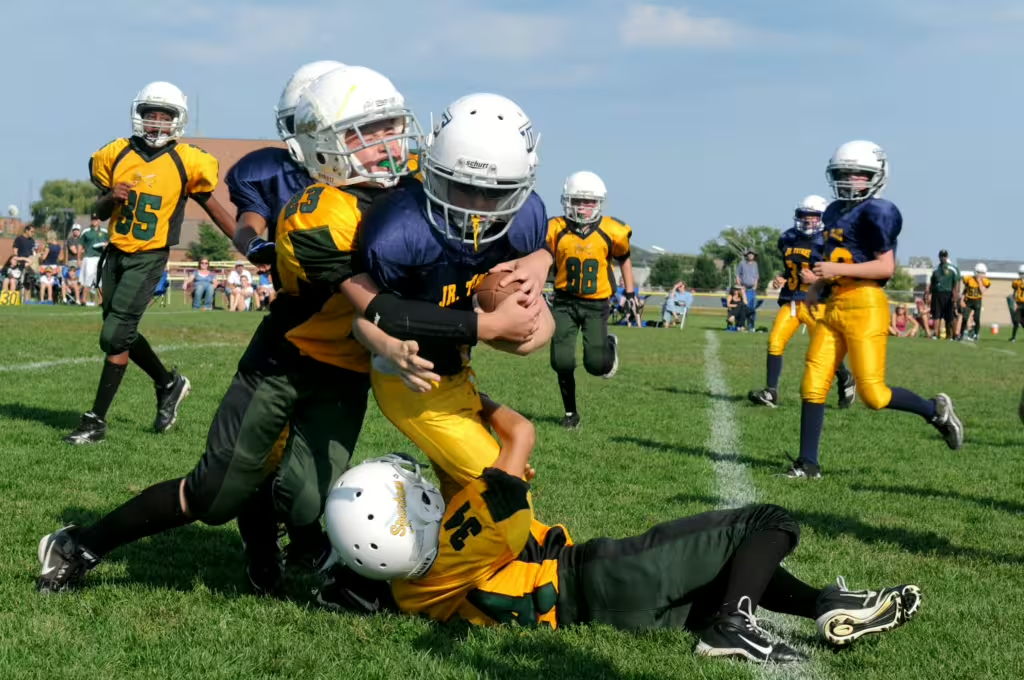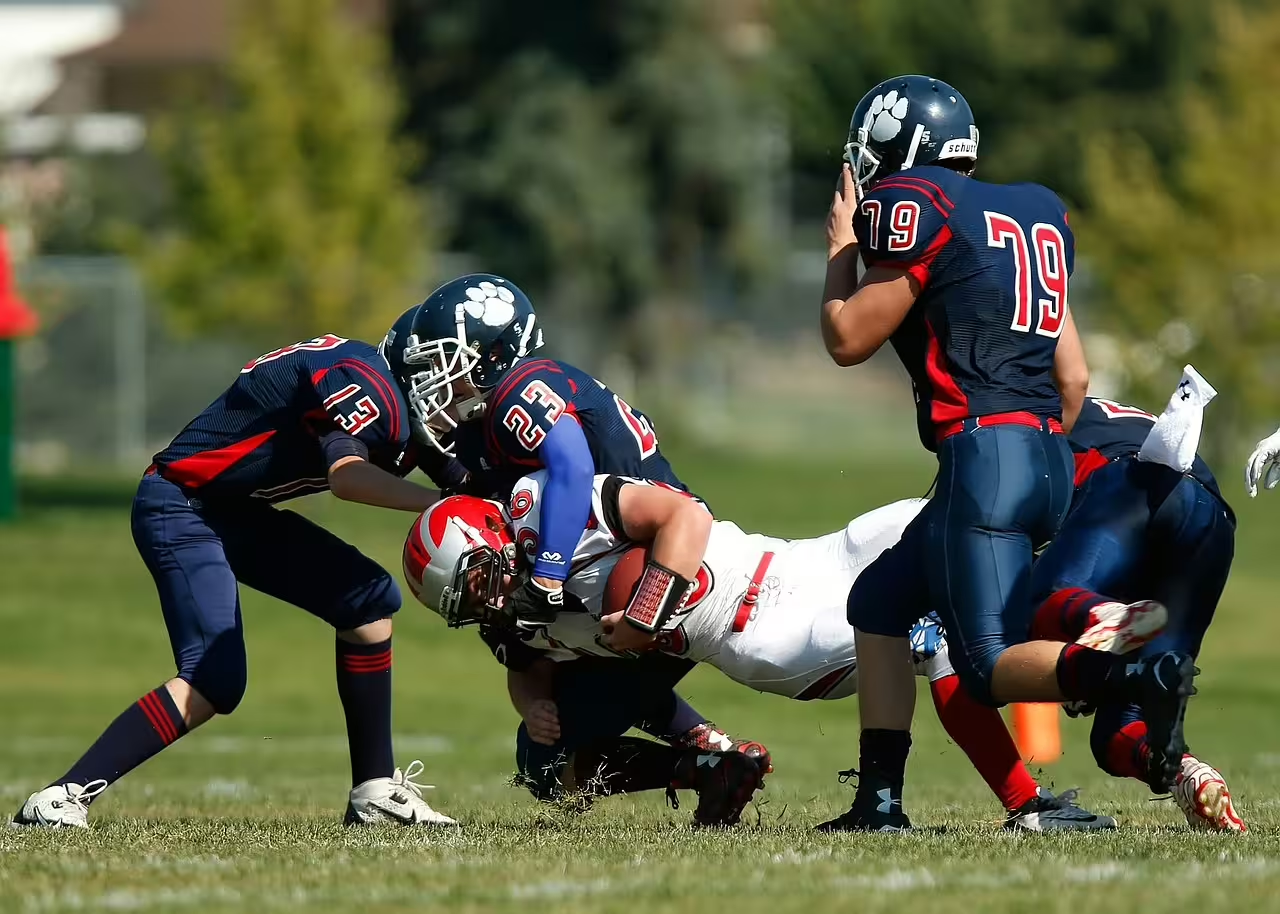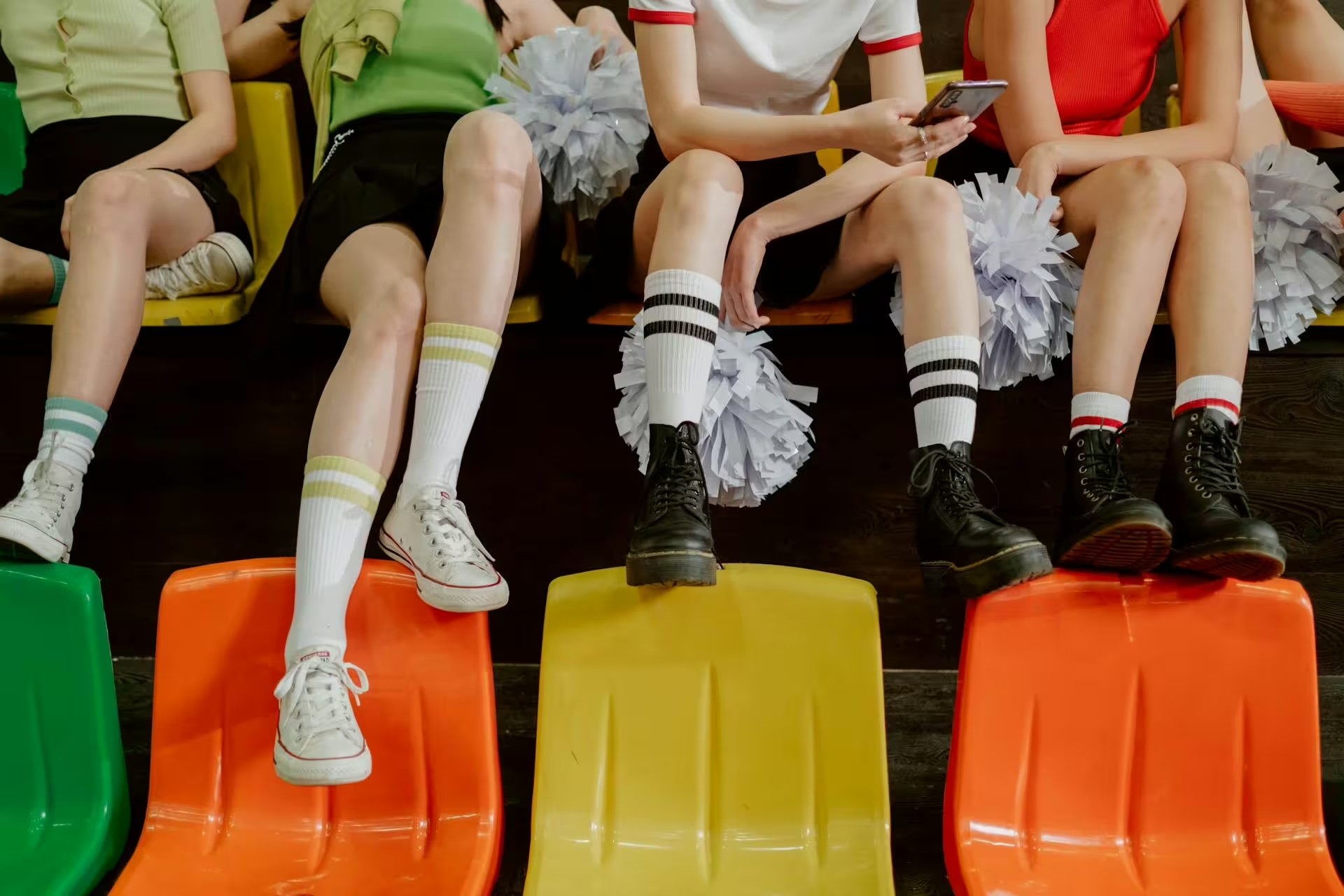Nobody likes to lose, but in sports, losing is an inevitable part of the game. Whether your child plays soccer, football, baseball, or any other sport, they are sure to encounter defeat at some point in their athletic career. Those losses can prove to be a sobering, disheartening, frustrating revelation for young players. However, all is not lost.
Teaching your child how deal with losing is a vital skill that can lead to personal growth and resilience in the face of adversity. Illustrating those coping mechanisms can also offer kids a better understanding of the true spirit of sportsmanship.
In this article, we will explore how to help young athletes bounce back after a tough game. We will endeavor to help them understand that winning isn’t everything and assist them in developing a healthy mindset and emotional resilience.
Understanding the Emotions of Losing
Acknowledge the Feelings
Children who experience athletic losses often feel a wide range of emotions: disappointment, sadness, anger, frustration—it’s like the cast of Inside Out in there! Because of this, it’s important to acknowledge those feelings and understand that they are a natural response to the situation. However, that does not mean that they should wallow in those feelings for too long. Sure, they have not achieving the desired outcome, but recognizing that it’s okay to feel upset about that fact can help kids process their emotions in a more healthy manner.
The Importance of Expression
Parents should also encouraging their children to express those unexpected feelings for a time. Doing this can be highly beneficial and lead to future self-reflective exercises, which are good for mental health throughout one’s life. Whether it’s talking about their disappointment, journaling, or engaging in creative outlets like drawing or music, expressing these emotions can be highly cathartic. These methods also ensure the release of pent-up frustration, which can make for rather moody, behaved children otherwise. Journaling, drawing, and the like also allow children to process their feelings constructively.
The Positive Side of Losing
Winning feels amazing and carries few negative emotions or actions with it. However, losing can also be turned into a positive experience if one knows how to view it. While losing may not feel great in the moment, it can offer valuable life lessons for children as they grow. The benefits of experiencing defeat are as follows:
4o
Learning Opportunities
Every loss provides an opportunity for your child to learn and improve. Encouraging young players to analyze what happened during the game can help them identify areas for growth. This encouragement can include skills they may need to work on, strategies they could have employed differently during the game, or ways they could have communicated better with teammates to facilitate a better outcome. Don’t lay into them or anything, simply explain that there are ways to turn a defeat into a chance to win the next time.
Building Resilience
Your kid is going to face difficult times in their life, and how they deal with adversity will become an important life skill. Losing teaches kids how to cope with setbacks, but it also teaches them how bounce back and become more resilient. The trick is to overcome that disappointment by staying positive. This will, in turn, help your child to build character and a growth mindset, which will serve them not only in sports but in many facets of their life.
Strengthening Team Bonds
A loss for one is often a loss for everyone on the team. This bond of teammates can help lessen the loss, because it’s nice to feel like those who are close to you are feeling exactly how you feel. The team may well rally around each other for support and commiserate together. Experiencing a tough loss as a team strengthens the bonds between teammates and ultimately fosters a sense of unity and continued teamwork. This shared experience can lead to deeper friendships for young players and a more supportive team atmosphere.
Appreciating Success
When you lose, it’s important to shift gears sometimes and focus on appreciating how great it feels when you win. In this vein, losing can help young athletes develop a greater appreciation for winning. In essence, the lows of defeat make the highs of victory become that much more rewarding. This may also prompt them to understand and appreciate the hard work and dedication that goes into winning, which can motivate them to put in more effort if they want to improve for the next time.
Strategies for Bouncing Back
Take Time to Reflect
Bouncing back after a loss isn’t as simple as flicking on a happy switch. After a tough game, kids need encouragement and time reflect on their performance and shift gears. Parents can facilitate this by asking open-ended questions to prompt positive thoughts, such as:
- What do you think went well during the game?
- What would you like to improve for next time?
- How did you feel when you were playing?
This is a mindfulness exercise and this reflective practice that can help children identify strengths and areas for improvement. It may also make it easier for them to move forward in a positive manner than wallow in their negativity and doubt.
Focus on the Process, Not Just the Outcome
Teaching your child to focus on the process of playing rather than just the outcome of the game sounds simple, but it’s gonna take some coaxing. This essentially means celebrating your child’s effort, their portion of the teamwork, and the many skills displayed during the match, regardless of the score. Think of it like a compliment sandwich in a way. Lead with the good stuff, throw in some slices of what they can do to improve, and remind them that every game is an opportunity to learn and grow.
Set New Goals
Helping your child to set new, often more achievable goals, after a loss is a good way to help them move forward. You don’t want to make things too easy like passing the ball or something innocuous, but the goals should focus on area where your kid might need a little bit of practice. It should also be areas where THEY want to improve.
- You can suggest developing a specific skill (e.g., shooting, passing, or dribbling).
- Parents might mention enhancing teamwork and communication on the field.
- You could also perhaps suggest your child might need to practice more regularly to build confidence.
Setting realistic goals provides a sense of direction and purpose for a child and it motivates them to work toward self improvement.
Stay Active and Engage in Fun Activities
Sometimes, the best way to bounce back from a loss is to engage in something fun. If your kid is in multiple sports, maybs shift gears and have them play that. Let them play some video games or engage in recreational activities that they enjoy. Shifting their focus away from disappointment for a time isn’t a sin , it just allows them to rediscover joy for a bit before you weight down on them with suggestions they might not feel are helpful in the moment.
Seek Support from Coaches and Teammates
Your kid’s teammates and coaches might also be feeling sour about the loss, so encourage them to talk with the team about their feelings. Coaches, in particular, often offer valuable feedback and support. They are used to losing at times and might be well-equipped to give the right pep talk to set your kid back on the path to happiness and success. Their teammates, on the other hand, can share their experiences and reassure them that they are not alone in feeling disappointed. This sense of camaraderie can be incredibly comforting for young athletes who are down in the dumps.
Practice Positive Self-Talk
Teach your kid the importance of positive self-talk, this means developing affirmations or phrases they can say to themselves to boost their confidence. These phrases will also help to remind them that it’s okay to make mistakes. This positivity can help your child combat the negative feelings of a loss without your intervention, or in situations where you might not be around to comfort them. Some examples of positive self-talk phrases include:
- “I gave it my best effort.”
- “I will learn and improve.”
- “Every athlete faces challenges.”
The Role of Parents in Helping Kids Cope
Provide Emotional Support
It may not always feel like it but your emotional support of your children is more important to them than you realize. As a parent, supporting your child after a tough game is crucial to instilling self-confidence and keeping self-doubt at bay. That support and understanding will ultimately provide comfort and help them process their disappointment in a healthy way. Even if it’s hard to take, you need to be their rock. Listen to your child’s feelings, validate their emotions, and reassure them that it’s okay to feel upset about the situation.
Encourage a Growth Mindset
The belief that abilities and intelligence can be developed through dedication and hard work is called a Growth Mindset. Teach that way of thinking to your child and emphasize that losing is part of the learning process. Let them know that every setback is an opportunity to grow and improve within their sport.
Celebrate Efforts, Not Just Wins
Shift the focus from winning to the effort your kid put in during the game. Celebrate your child’s hard work and preparation, highlight their dedication during practice, and congratulate them on their good sportsmanship on and off the field. Highlighting these concepts will help your child understand that success comes in many forms, not just the final score.
Model Resilience
Share your own tales of defeat and triumph. Illustrate to your child how they should handle setbacks by sharing how you handled your own. You can recall personal challenges you’ve faced and explain how you managed to overcome them in the end. Doing so can help young athletes to see that everyone experiences ups and downs. More importantly, they will learn that like the skills they need to improve to get better on the field, resilience is a skill that can be developed over time.
Moving Forward After a Loss
Get Back to Practice
When you fall off a horse, the best thing you can do is get back on. The same is true on the sports field. Encourage your child to return to practice as soon as they are able. We all know that regular practice reinforces the idea that hard work leads to growth and improvement, so it’s best to get back at it ASAP. After a period of rest and reflection, getting back on the field can help them regain their confidence in a meaningful way. Doing so can also help them refocus on improving their skills.
Find Joy in the Game
Help your kid rediscover their love for the sport. Maybe watch a game together or simply remind them of the reasons they started playing in the first place. Encouraging your child to enjoy the game, regardless of wins or losses will reignite the joy they feel when playing. This also does wonders in helping them basically forget those yucky feelings of loss and replace them with new feelings of joy.
Remind Them of Their Strengths
Don’t be afraid of puffing your child up a little after a loss. Remind them of their strengths and accomplishments, perhaps by highlighting specific moments from a game where they might have performed particularly well. Psychology has taught us, positive reinforcement always does more than negative, and doing this can help boost a young athlete’s confidence more than ever.
Encourage Sportsmanship
Though it might seem seem like something of a non-issue, teaching your child the importance of good sportsmanship will help them deal with defeat even better. It will also make them a better winner in the long run. Sore winners and sore losers have no place on the field and such negativity drags everyone down in the end.
The Long-Term Benefits of Learning to Cope with Losing
Building Resilience for Life
Learning to cope with losing in sports teaches young athletes skills that are going to be essential life skills going forward. Kids need to learn the ability to bounce back from setbacks, it’s not intrinsic. It is, however, a crucial part of navigating academics, relationships, and their future careers. Learning resilience helps children adapt to challenges and emerge stronger.
Fostering Emotional Intelligence
Understanding and managing their own emotions is another critical aspect of a child’s developing emotional intelligence. If we can teach them to learn how to deal with disappointment in a positive way, they can learn empathy and improve their interpersonal skills, both of which are invaluable in building healthy future relationships.
Conclusion
As your child continues their athletic journey, remind them that even the most incredible professional athlete faces adversity at some point in their career. They didn’t start out as the best and they learned how to be better by facing defeat with positivity and resilience. Sure, losing can be tough, but it’s an essential part of sports and just about every little thing that life has to offer. There is opportunity for growth in that, however, and by doing our part to help deal with the mixed emotions of loss, we can make our kids into better athletes and better people.
Discover more from CulturedAthlete
Subscribe to get the latest posts sent to your email.






